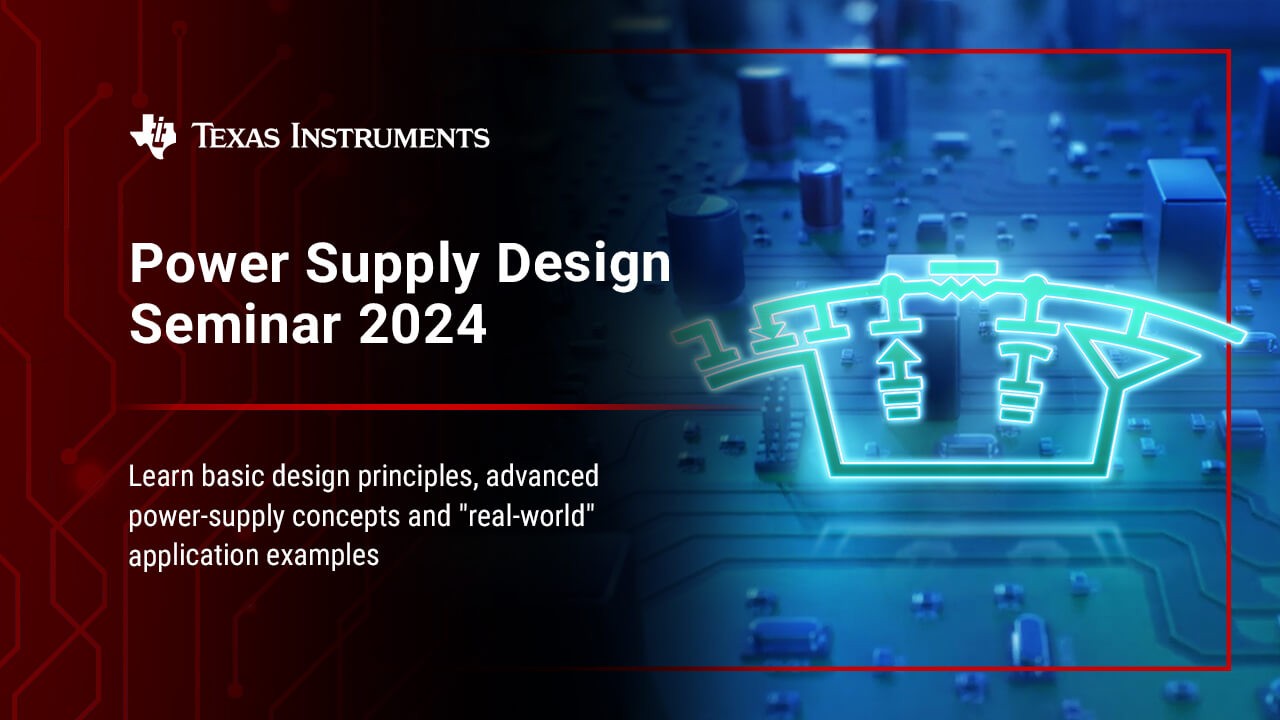
The Power Supply Design Seminar 2024 is open for registration. You can learn more about the sessions and access registration at www.TI.com/psds2024. In-person sessions will be held during March in the U.S., China, Taiwan, Korea, Singapore, Japan, Germany and Turkey. Registration will open soon so check back often or look for other communication from TI about the event.
Since its introduction in 1977, the Power Supply Design Seminar (PSDS) series has provided rich, technical and practical training combining new advanced power supply concepts, basic design principles and "real-world" application examples. Whether this seminar is used to gain fresh knowledge of power management, or as a review for those experienced in power supply design, the topics presented will be worthwhile for all levels of expertise.
Access the archives for previous PSDS sessions including the 2022 sessions.
Session details from 2022
| Topic & description |
|---|